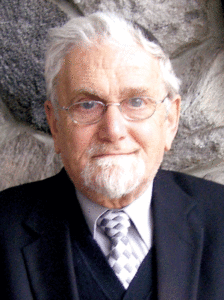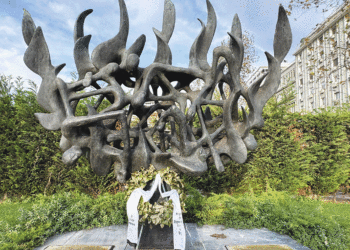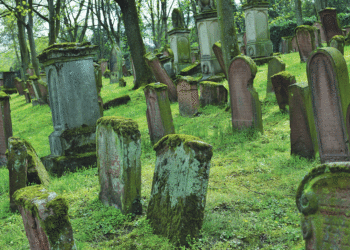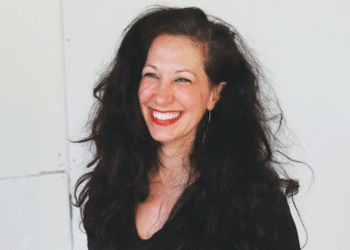Rabbi Barry Woolf, who turned 75 on May 11, sees his mission in life as being a comforting presence for those in crisis
By ERIN ELLIOTT BRYAN / Community News Editor
When Rabbi Barry Woolf was a young boy, his maternal grandfather — a successful businessman who supported Hasidic rabbis in Woolf’s native England — took him to meet a rebbe who was living in a dark basement illuminated only by a candle. Woolf and his grandfather spent nearly an hour with the man.
“As we left, I asked my grandfather, my zayde, ‘Why is he sitting like this?’ And my zayde told me the story,” Woolf recalled. “The rebbe had a son who at a very young age got leukemia, and the rebbe wouldn’t permit a blood transfusion and the kid died — and the wife left him. And he sat there until the end of his life in that state.”
That experience left an indelible impression on Woolf, who still vividly recalls the details of that day.
“I’ve always felt that I have to be there for people,” Woolf said. “That’s my mission in life. If God grants me the strength and keeps me well, I have to do that for the rest of my days.”
In 2013, Woolf is commemorating 40 years of serving the Twin Cities Jewish community — as a rabbi, a counselor, a teacher and a comforting presence for people in crisis. He celebrated his 75th birthday on May 11.

With family members in the rabbinate, Woolf had been around synagogues his entire life. He began teaching Hebrew when he was just 12 years old, and often taught students with disabilities.
Though his parents encouraged a career in law or business, Woolf knew nothing else and wanted only to become a rabbi. He came to the United States in 1968 to take a job as a teacher and rabbinic counselor at a boarding school in Stamford, Conn.
“It was for kids who had difficulties,” Woolf said. “These were kids who didn’t fit in the normal schools and got involved in drugs, alcohol and so on.”
He later took a job in Superior, Wisc., for two years before coming to St. Paul in 1973, where he taught at the Talmud Torah of St. Paul. Woolf then served as the Jewish chaplain for Minnesota state hospitals and prisons and began lecturing at Hazelden, an addiction treatment center in Center City, Minn.
Woolf developed a “deep interest” in mental illness and substance abuse, and other subjects that were not discussed in the 1970s — afflictions “that Jews thought they didn’t have.”
“The reality was not being faced. I’m the type of person if I see that something isn’t being done, I’m not going to sit back and say, well, I can’t do anything either. Maybe I can’t, but at least it should be spoken about,” he said. “I built up the concept that it’s all right to talk about these subjects.”
Woolf has also served as a consultant at the Johnson Institute for Alcohol and Drugs for Minnesota and as a member of the Governor’s Task Force of Minnesota on Drug Abuse. He was the founding rabbi of Jewish Alcoholics, Chemically Dependent Persons and Significant Others (JACS), and the Jewish Recovery Network of Minnesota, and has worked with the annual Twin Cities Jewish community conference on mental health since its inception.
He continues to lecture on these issues all over the country, including at Beit T’Shuvah, a residential treatment center and congregation in Los Angeles.
“It’s a subject that every family has to face up to,” Woolf said. “There’s always a family member that is different — a family member has emotional problems, a family member has an addiction problem. There’s no family that’s free from it, it doesn’t matter who you are… it will touch you somehow.”
Similarly, Woolf has identified the unique needs of clergy members — both Jewish and non-Jewish — who may wrestle with mental illness, addiction or any other emotional issue. Together with psychotherapist Dr. Sheldon Pinsky, he is working to form a support program where spiritual leaders will feel safe to share their struggles (3-2-12 AJW).
Woolf has seen clergy members suffer anguish, and, as a result of their pain, their families suffer as well.
“I feel strongly that something has to be done about it,” Woolf said. “As I travel around, I see Jewish clergy — from the right-wing religious to the Reconstructionist group — suffering deeply, and their families suffering deeply, with nowhere to go and no place to turn… There’s a need for help.”
Woolf’s ultimate dream is to start a retreat center where clergy from all denominations can seek counseling and therapy, and “realize they’re not alone in their anguish.”
In addition to his work with those struggling with personal issues, Woolf has worked with Hodroff-Epstein Memorial Chapels for the last 40 years. There, he officiates funerals for the unaffiliated, comforts those in mourning and performs shmira (sitting with the bodies).
“It’s so rewarding to see people in their hour of need whom I can help, and they appreciate it,” Woolf said. “I could do this for many years more.”
At 75, Woolf has no plans to retire. He continues to work to do away with the stigma of mental illness and addiction, and is trying to understand why people are “turned off” the path of Judaism. He would also like to create a community-wide chaplaincy program that includes a rabbinic presence.
Woolf emphasized that he is open to everyone and their ideas.
“Over the 40 years that I’ve been here, I’ve endeavored to show that an observant Jew doesn’t have horns and that we’ll go anywhere to participate in the family simchas, and family trials and tribulations of fellow Jews,” he said. “I’m very grateful to this wonderful community for putting up with me and my crazy ideas for so many years. I do really appreciate it.”
***
For information on Rabbi Barry Woolf and his work, visit: rabbibarry.com.
(American Jewish World, 5.24.13)



















Dear Editor:
Thank you for the kind words about my father. Our family is so proud of his work for the community at large.
Keep up the good work Dad!
Love,
Chaim, Yael, Asher, Naomi, Adam, and Noa